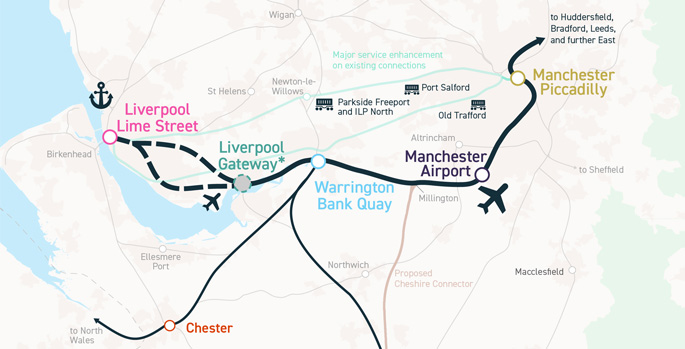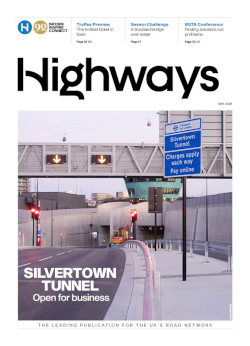A report from Transport for Greater Manchester has proposed a new train line between Manchester and Liverpool suggesting it could alleviate strain on the strategic road network.
Connecting the North West to drive national prosperity suggests that the new line could remove up to 321,000 heavy goods vehicles (HGVs) from roads through freight alternatives.
‘Logistics operators need flexibility, frequency, and reliability — if the rail network can’t offer that, the market shifts to road, which is the default for the corridor today. In turn this is causing major congestion on the strategic M62 and M60 highway network,’ it states.
Transport for Greater Manchester (TfGM) prepared the report, in partnership with Arup, on behalf of the Liverpool-Manchester Railway (LMR) Board and states that the new rail link will support clean growth and sustainability by enabling the creation of integrated transport systems.
Due to high passenger demand and pressures, ‘the number of freight paths is limited, this constrains growth in the freight sector and leads to unnecessary lorry trips that contribute to road congestion and pollution’, the report states
‘While north–south rail freight routes are relatively well served,’ the report argues, ‘east–west connections, especially between the Freeport sites of Liverpool, and logistic hubs in Manchester are severely constrained – presenting a critical missing link in building a greener, more productive and globally connected Northern economy.'
As part of the project, the LMR board also proposes to work with the Welsh Government to undertake a ‘multimodal review of the North Wales transport corridor’ to develop improvements that will include North Wales’s strategic road network.
Huw Merriman, chair of the Liverpool-Manchester Railway Partnership Board, said: ‘The Government must invest in infrastructure to achieve its number one priority of growing the UK economy.
'With years of concentration in the south, there needs to be a fair balance of where that’s targeted and the time is ripe to rebalance the nation. The North West is growing and will grow faster with transport infrastructure connecting people to new homes, jobs and skills to equip them for life.’






